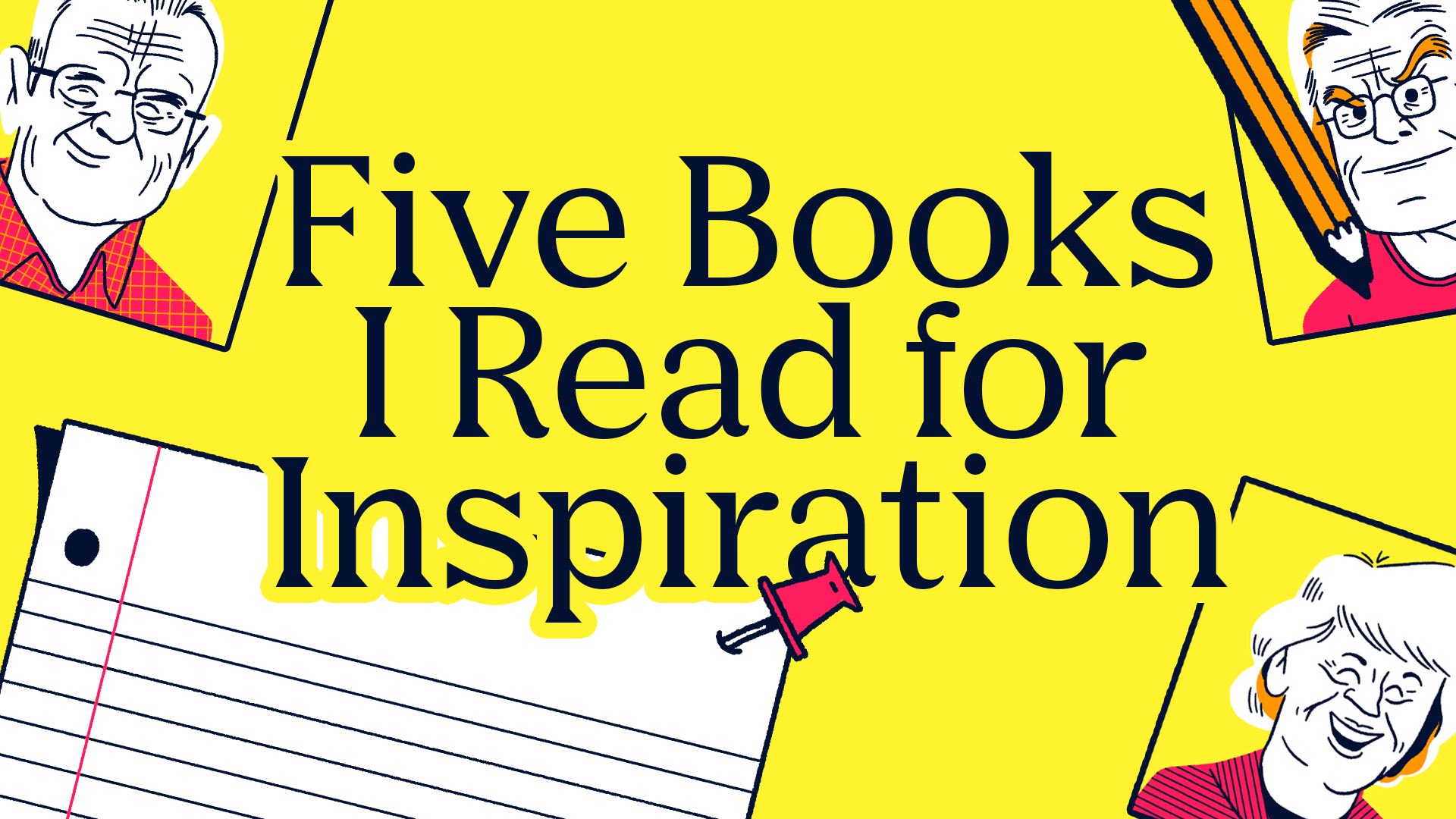When I find myself in creative ruts or imposter syndrome is rearing its head, I have a go-to list of activities and tools I pull from to combat this annoying mindset. My go-to's are getting up and away from my work to go for a run, a 10-minute mediation session, and listening/reading some books for inspiration.
Recently, listening to books has been the most helpful in climbing out of these ruts. The escapism that books provide helps to create a space where I can ground myself and come back to the table (hopefully) open-minded and with a refreshed perspective of the work. Some of my favorite reads are books that deep dive into my favorite artists/studios, like Alexander Girard, Lincoln Studios, and Chip Kidd. For this list, I wanted to look at five non-design books that have been impactful in helping to ground me during those times in my creative career that were difficult and filled with "unknowns." Helping to shape my perspective and mindset on my creative process and as a human living in this crazy world.

1. On Writing - Stephen King
Stephen King being one of my favorite authors to read, it was easy for me to pick this up and start listening. King breaks down his experience from the early days of his career to where he is now. There isn't a better book that understands what it means to take a creative person and the struggles that come with it. On Writing helped me understand what it means to take myself seriously as a professional illustrator/designer. The way King writes is visceral and incredibly impactful for the reader. This list isn't in any particular order, but if it were - this would be number 1.

2. Mindfulness - Ellen Langer
Mindfulness by Ellen Langer gave me tools to help me genuinely learn how to expand my perspective and look beyond the assumptions we all build up by living life. From the first few pages, Langer's writing was engaging and could concisely tell elaborate psychology theories in accessible ways that didn't feel "dumbed down." Mindfulness was vital in really elevating observation in my creative process. When I struggle to feel "connected," I think of some of the exercises within Mindfulness and try to see how I can shift perspectives and bring new angles to how I am looking at the problem in front of me.

3. Flow - Mihaly Csikszentmihalyi
I first read Flow in my senior year of college, a month before graduating. Since then, this book, my Mihaly, has been a staple in my library and a top suggestion I give to everyone. Flow breaks down and helps you find how you work best as an individual. Helping you identify the "optimal experience" state where everything in your creative process is working together. Mihaly uses experiments and examples on how to be genuinely conscious in your work to and help build the environment that empowers this optimal state for yourself.

4. Pale Blue Dot - Carl Sagan
When I feel that the world's craziness is building up or I'm starting to feel nihilistic about the present and future - I pick up Pale Blue Dot by Carl Sagan. Sagan breaks down complex ideas and subjects in astronomy and spins them into powerful stories that all build towards a future that has promise. The Writing throughout hits an emotionally authentic chord that brings the reader into a headspace where they can pull back from where they are and see the world from a place of more significant meaning.
After reading Pale Blue Dot, I immediately went out and bought a pair of binoculars and started staring at the night's stars and more. PBD helps to remind me of what it means to belong to this big rock, the Earth, that it's important to think bigger and that not everything you make is urgent and even necessary.

5. Wherever You Go There You Are - Jon Kabat-Zinn
Finally is Jon Kabat-Zinn's Wherever You Go, There You Are. Building off of Mindfullness by Ellen Langer, this book has helped break down the fogginess in my head around finding headspace to think clearly no matter how busy the schedule or how hectic the projects become.
One of the most significant learning curves I've learned while moving to freelance was knowing how to solo critique your work without being too "in your head." The meditations that Kabat-Zinn provides throughout the book help to refocus and zoom out on your work and look big picture at the progress you're making on the project. These meditations are incredibly accessible and make it easy to implement in your day-to-day life.
